双(4-硝基苯基)硫醚, ≥99.9%,Bis(4-nitrophenyl) Sulfide
产品编号:西域试剂-WR139143| CAS NO:1223-31-0| MDL NO:MFCD00039745| 分子式:C12H8N2O4S| 分子量:276.27
本网站销售的所有产品仅用于工业应用或者科学研究等非医疗目的,不可用于人类或动物的临床诊断或者治疗,非药用,非食用,
| 英文名称 | Bis(4-nitrophenyl) Sulfide |
|---|---|
| CAS编号 | 1223-31-0 |
| 产品熔点 | 160°C |
| 产品沸点 | 487.4±30.0 °C at 760 mmHg |
| 产品密度 | 1.5±0.1 g/cm3 |
| 产品闪点 | 248.6±24.6 °C |
| 精确质量 | 276.020477 |
| PSA | 116.94000 |
| LogP | 3.59 |
| 外观性状 | 固体;Light yellow to Brown powder to crystal |
| 蒸气压 | 0.0±1.2 mmHg at 25°C |
| 折射率 | 1.687 |
| 溶解性 | 可溶于:丙酮 |
| 稳定性 | 如果遵照规格使用和储存则不会分解,未有已知危险反应,避免氧化物 |
| 储存条件 | 保持贮藏器密封、储存在阴凉、干燥的地方,确保工作间有良好的通风或排气装置 |
相关文档
化学品安全说明书(MSDS)
下载MSDS质检证书(COA)
相关产品
| 风险声明 (欧洲) | R23/24/25 |
|---|---|
| 安全声明 (欧洲) | S26-S36/37/39 |
| 危险品运输编码 | 2811 |
| RTECS号 | WQ2150000 |
| 海关编码 | 2930909090 |
|
Bis(4-nitrophenyl) Sulfide
Revision number: 5
SAFETY DATA SHEET Section1. IDENTIFICATION Product name:Bis(4-nitrophenyl) Sulfide Revision number:5 Section2. HAZARDS IDENTIFICATION GHS classification PHYSICAL HAZARDSNot classified HEALTH HAZARDS Acute toxicity (Oral)Category 4 Not classified ENVIRONMENTAL HAZARDS GHS label elements, including precautionary statements Pictograms or hazard symbols Signal wordWarning Hazard statementsHarmful if swallowed Precautionary statements: [Prevention]Do not eat, drink or smoke when using this product. Wash hands thoroughly after handling. IF SWALLOWED: Call a POISON CENTER or doctor/physician if you feel unwell. [Response] Rinse mouth. Dispose of contents/container through a waste management company authorized by [Disposal] the local government. Section3. COMPOSITION/INFORMATION ON INGREDIENTS Substance/mixture:Substance Components:Bis(4-nitrophenyl) Sulfide Percent:>99.0%(GC) CAS Number:1223-31-0 Synonyms:4,4'-Dinitrodiphenyl Sulfide , Di(4-nitrophenyl) Sulfide Chemical Formula:C12H8N2O4S Section4. FIRST AID MEASURES Inhalation:Remove victim to fresh air and keep at rest in a position comfortable for breathing. Get medical advice/attention if you feel unwell. Skin contact:Remove/Take off immediately all contaminated clothing. Rinse skin with water/shower. If skin irritation or rash occurs: Get medical advice/attention. Bis(4-nitrophenyl) Sulfide Section4. FIRST AID MEASURES Eye contact:Rinse cautiously with water for several minutes. Remove contact lenses, if present and easy to do. Continue rinsing. If eye irritation persists: Get medical advice/attention. Ingestion:Call a POISON CENTER or doctor/physician if you feel unwell. Rinse mouth. Protection of first-aiders:A rescuer should wear personal protective equipment, such as rubber gloves and air- tight goggles. Section5. FIRE-FIGHTING MEASURES Dry chemical, foam, water spray, carbon dioxide. Suitable extinguishing media: Specific hazards arising Take care as it may decompose upon combustion or in high temperatures to from the chemical:generate poisonous fume. Precautions for firefighters: Fire-extinguishing work is done from the windward and the suitable fire-extinguishing method according to the surrounding situation is used. Uninvolved persons should evacuate to a safe place. In case of fire in the surroundings: Remove movable containers if safe to do so. Special protectiveWhen extinguishing fire, be sure to wear personal protective equipment. equipment for firefighters: Section6. ACCIDENTAL RELEASE MEASURES Personal precautions,Use personal protective equipment. Keep people away from and upwind of spill/leak. protective equipment and Entry to non-involved personnel should be controlled around the leakage area by emergency procedures: roping off, etc. Environmental precautions: Prevent product from entering drains. Methods and materials for Sweep dust to collect it into an airtight container, taking care not to disperse it. containment and cleaning Adhered or collected material should be promptly disposed of, in accordance with up: appropriate laws and regulations. Section7. HANDLING AND STORAGE Precautions for safe handling Technical measures:Handling is performed in a well ventilated place. Wear suitable protective equipment. Prevent dispersion of dust. Wash hands and face thoroughly after handling. Use a local exhaust if dust or aerosol will be generated. Advice on safe handling: Avoid contact with skin, eyes and clothing. Conditions for safe storage, including any incompatibilities Storage conditions:Keep container tightly closed. Store in a cool and dark place. Store away from incompatible materials such as oxidizing agents. Packaging material:Comply with laws. Section8. EXPOSURE CONTROLS / PERSONAL PROTECTION Engineering controls:Install a closed system or local exhaust as possible so that workers should not be exposed directly. Also install safety shower and eye bath. Personal protective equipment Respiratory protection: Dust respirator. Follow local and national regulations. Hand protection:Protective gloves. Safety glasses. A face-shield, if the situation requires. Eye protection: Skin and body protection: Protective clothing. Protective boots, if the situation requires. Section9. PHYSICAL AND CHEMICAL PROPERTIES Physical state (20°C):Solid Crystal- Powder Form: Colour:Pale yellow - Reddish yellow No data available Odour: pH: No data available Melting point/freezing point:160°C Bis(4-nitrophenyl) Sulfide Section9. PHYSICAL AND CHEMICAL PROPERTIES Boiling point/range:No data available Flash point:No data available Flammability or explosive limits: Lower:No data available Upper:No data available Relative density:No data available Solubility(ies): [Water]No data available [Other solvents] Soluble:Acetone Section10. STABILITY AND REACTIVITY Chemical stability:Stable under proper conditions. Possibility of hazardous No special reactivity has been reported. reactions: Incompatible materials: Oxidizing agents Hazardous decomposition Carbon monoxide, Carbon dioxide, Nitrogen oxides (NOx), Sulfur oxides products: Section11. TOXICOLOGICAL INFORMATION Acute Toxicity:orl-rat LD50:1490 mg/kg Skin corrosion/irritation: No data available Serious eyeNo data available damage/irritation: Germ cell mutagenicity: No data available Carcinogenicity: IARC =No data available No data available NTP = Reproductive toxicity:No data available RTECS Number:WQ2150000 Section12. ECOLOGICAL INFORMATION Ecotoxicity: Fish:No data available Crustacea:No data available Algae:No data available Persistence / degradability: No data available BioaccumulativeNo data available potential(BCF): Mobility in soil Log Pow:No data available Soil adsorption (Koc):No data available Henry's LawNo data available constant(PaM3/mol): Section13. DISPOSAL CONSIDERATIONS Recycle to process, if possible. Consult your local regional authorities. You may be able to dissolve or mix material with a combustible solvent and burn in a chemical incinerator equipped with an afterburner and scrubber system. Observe all federal, state and local regulations when disposing of the substance. Section14. TRANSPORT INFORMATION Hazards Class:Does not correspond to the classification standard of the United Nations UN-No:Not listed Bis(4-nitrophenyl) Sulfide Section15. REGULATORY INFORMATION Safe management ordinance of dangerous chemical product (State Council announces on January 26, 2002 and revised on February 16,2011): Safe use and production, the storage of a dangerous chemical, transport, loading and unloading were prescribed. SECTION 16 - ADDITIONAL INFORMATION N/A |
| 上游产品 10 | |
|---|---|
| 下游产品 10 | |

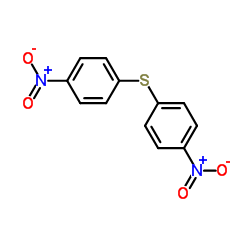
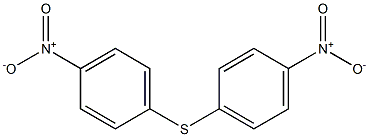
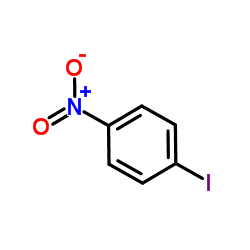
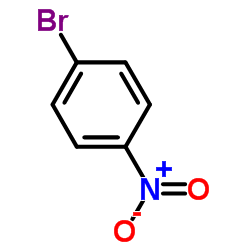
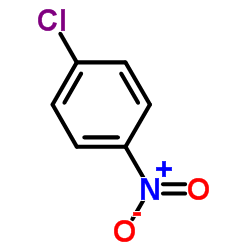
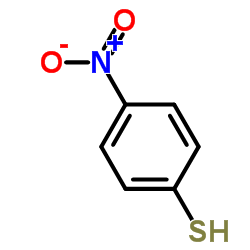
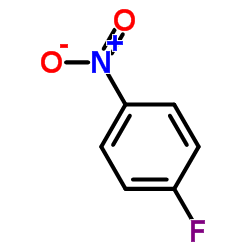

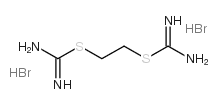
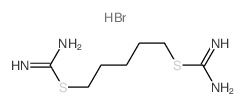
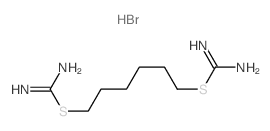

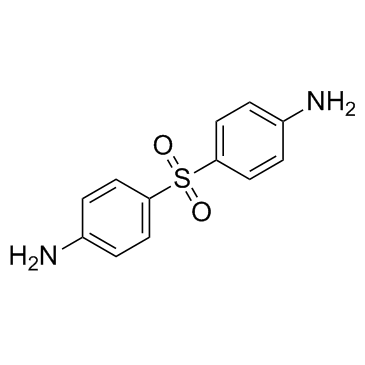
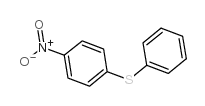
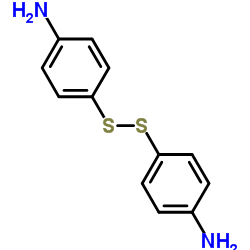
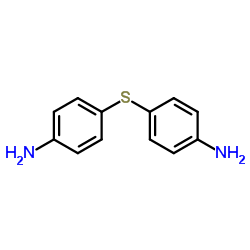
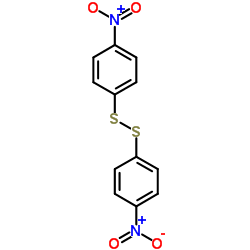
![4-[(4-nitrophenyl)disulfanyl]aniline结构式](/20230522/40897-48-1.png)
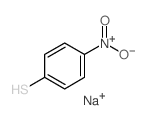
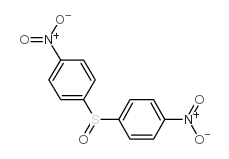
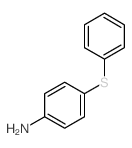





 浙公网安备 33010802013016号
浙公网安备 33010802013016号